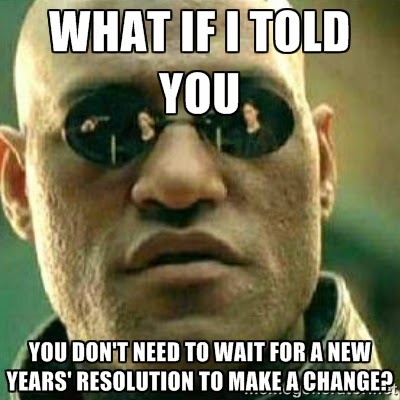"True terror is to wake up one morning and discover that your high school class is running the country." ~Kurt Vonnegut
I was struck by an interesting question last week that caught me off guard: "She's half-way through her Senior year of high school, what should she be focusing on for college?"
.jpg)
I was caught off-guard not because it's a bad question...it's actually a brilliant question...I'm just guessing that it's usually answered incorrectly. You see, what you need to survive in college, isn't found in a text book. It's actually a set of acquired skills that are rarely even mentioned. And it's sad. Lost in all this talk about Common Core and the next standardized test, the real survival skills are forgotten.
I worked in university admissions for 6 years, so I was able to observe a pretty good list of reasons why students dropped out of college...and it usually wasn't because they weren't smart enough.
So, Alex Trebek,
I'll take: "7 Things the ACT & SAT Forgot to Teach You...for $42,000."
1. The Ability and Poise to Say "No"
It will take your child about 20 seconds on campus to realize there are 101,000 distractions. Drinking. Athletics. Parties. Social Clubs. Greek Life. Dating...to name a few. So when it's Thursday night and your huge exam is Friday at 8am, can you say "no" when everyone else is headed to a party? Saying "no" when it means the most is an art form.
2. Reading for Long Periods of Time
It sounds silly at first. But remember: You're 18 years-old with the attention span of a monkey with A.D.D. You're sitting there in the midst of all the distractions and invites. Can you stay focused long enough to read
and retain the material in front of you for 60 minutes? 90 minutes?
3. Working in Groups
Much of college is about survival, and sometimes surviving means you get a group and you hit the library until you hit a milestone. Collaboration on homework. Group Think. Group presentations. You'd be surprised and saddened by the number of people who can't interact with small crowds.
4. Living with No Extra Credit
Extra Credit in high school is sometimes given out more frequently than lunchroom pizza or milk in small cartons. Write an extra essay- 30 extra points. Do an extra project- bonus points. The buffer allowed for a bad test score every now and then and kept your grades in good standing regardless of what you were learning. In college? Not so much. The grade you earned the first time is the grade that will effect your average. Professors will ask you- why should I give extra credit when you didn't study the first time?
5. Entitlement Stays Home with Mommy & Daddy
This one might be the hardest. If you believe college is going to hold your hand and owe you something...then you're going to get used to a lot of F's and WF's (withdraw while failing). You need a strong work ethic, motivation, and a pile of stick-to-it-iveness. No one is going to hand you anything- you have to be ready to go earn it yourself.
6. Time Management
Often branded a corporate term, personal
Time Management is just as important as pizza and Ramen noodles for college survival. Your course work...Study groups...Part time job...Significant other. And all the social events already mentioned. Having a system for scheduling and balancing it all is critical to success. That has to start in high school, and I highly recommend employing the help of a system like a day planner or digital calendar.
7. Critical Thinking
Your child can read. Your child can write. But can he or she think for himself/herself? Do you have a child who can take a situation and some data to objectively analyze a problem? Can he think outside the box when a common formula doesn't quite fit? Can she find a solution when all the factors aren't apparent? Challenge your child. Make thinking outside the box a weekly task. Critical Thinking is more than a college skill...it's a life skill.
Care for a bonus? (no Extra Credit, though)...
8. Surviving on Little or No Sleep
When Mommy and Daddy are facilitating the physiological needs, the balance and scheduling can often get taken for granted. So when you find the need to study until 10pm, rush to Waffle House for a bite to eat, then hit a couple parties until 3am...you're still forced to remember that it's only Tuesday and you have a full day tomorrow. It gets even better when the cycle goes, wash, rinse, & repeat. The solution isn't keeping a high school student up late on weekdays, but every now and then, a chore or task when your kid is a little tired and groggy isn't a bad idea.
Does this list include every skill a student with college ambitions should embrace?? Of course not. But it's a solid start, especially for you parents with 8th and 9th graders. And if you parents are wondering if your student will be "college-ready," you should remember to value and boost the
life skill-sets as much as is traditionally done with
knowledge.
Happy College Prepping,
Coach Jake
P.S. Ask me how
Maximal Me Coaching Programs can help prepare your college student.



.jpg)


